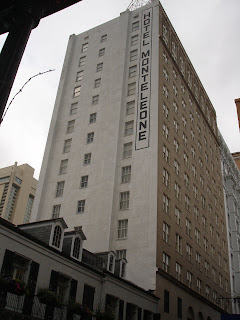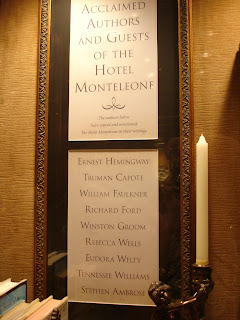When I’d show up for class in college on the day we’d start talking about a new work, one of my favorite things was hearing my professor lecture for a bit on the author of the work, giving context and insight into their life, their work and how the two were intertwined. Now I really enjoy works of fiction and movies that depict authors’ lives, drawing conclusions, filling in blank spaces and speculating on what might have been going on in an author’s life. In this genre I have read
The Lost Memoirs of Jane Austen
by Syrie James and watched
Becoming Jane
, among other works about both Austen and other authors. It’s fun to think about what lives authors were leading before, during and after the writing of their notable works. What has been left out of their biographies? Lost or unrequited loves? Dissatisfaction with home and family life? A secret desire to have a certain type of career? In many cases we’ll never know for sure, which for me is part of the fun.
Last week I read
The Lost Summer of Louisa May Alcot t
t by
Kelly O’Connor McNees just after finishing reading
Little Women
for the first time since high school or maybe even middle school. A friend of mine had also just finished
The Lost Summer and asked me what about the work was fiction and what was written based on truth. Of the top of my head, I knew Alcott’s father, Bronson, was a free-spirited Transcendentalist philosopher who never earned quite enough money to support his wife and four daughters comfortably. I knew Alcott was the second of four sisters and is often thought to have written her character Jo to reflect herself.
These things were reflected in
The Lost Summer, and the author notes at the end of the novel that she had been on a quest to find out about the real Alcott, as her biographies portray her in different ways (now I’m interested in reading some of those biographies for myself). Once McNees discovered in one of the biographies that Alcott often burned letters she received after reading them, she latched on to that and began to form a story around a supposed love affair (Alcott’s love interest in the novel is a fictional character). She set the story during a summer when the Alcott family lived temporarily in Walpole, New Hampshire, where not much is known about how Alcott spent her time while she was there.
The book was well-researched and seemed very real to me, contributing more to the enjoyment I got out of reading it. Also, I was happy to have just read
Little Women 
again, which is a story I just adore. I’m still hanging on to my VHS tape of the 1994 movie version starring Susan Sarandon, Wynona Ryder, Kirsten Dunst, Samantha Mathis, Gabriel Byrne, Claire Danes and Christian Bale. I think it’s about time to watch it again.
It was interesting to be reading
The Lost Summer of Louisa May Alcott while listening to
Leslie Bennetts’ The Feminine Mistake: Are We Giving Up Too Much?
in the car. Since I don’t have children, I don’t really have a dog in this fight, but it’s an interesting subject considering that I have friends that are moms. Some have chosen to keep working and some have put careers on hold to make parenting at home their full-time job. (**Note: I’m not taking a position on the mommy wars, just simply reporting that I’ve read an interesting, thought-provoking book!)
Bennetts’ stance is that women who fool themselves into assuming they’ll always be financially taken care of by their husbands are assuming too much. With a high divorce rate, an unstable economy and risks of disability, medical issues and death, stay at home moms are taking a huge risk by giving up their own income to rely solely on their husbands’.
In
The Lost Summer, Alcott struggles with the fact that she’s different from every other unmarried young woman in Walpole and Boston in that she has absolutely no desire to change her marital status. That makes her different and it’s a hard concept for some, like her landlady in Boston, to understand. She says things like, “The dainty ones [women] look pretty in a sitting room, ma’am, but when a woman is making her way in the world on her own, she must resolve to take fate by the throat and shake a living out of her.” She thinks to herself, “Was it too much to ask to simply be left alone? It seemed her very existence as a single woman invited speculation and offers of help, as if it were simply impossible that she truly might not want to be married.”
Bennetts cites woman after woman who is left in the lurch after her husband runs off with a younger woman from the office, is diagnosed with terminal cancer or just decides marriage isn’t for him, and she has to earn a living to provide for herself and her children. Bennetts give a lot of evidence on why and how it’s so hard to jump back into the labor force once you’ve been out, even if just for a little while. (This book was published in March 2008. I would LOVE to get Bennetts’ take on this topic now that the economy has tanked and some families have been forced to get really creative to keep their households going.)
I guess women have been struggling with some of the same things for centuries, trying to decide what’s best for them. I expect going forward that will stay the same.









